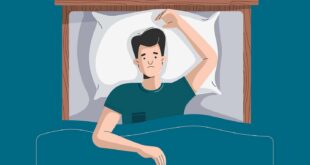Sleep can become a major worry for people with Anxiety. Some people
find it hard to get enough sleep because their mind is racing and their
body on full alert. Others are so exhausted from the constant tension of
Anxiety that they sleep for much longer than they normally would.
These are sleep problems which can be dealt with as part of your
Anxiety recovery programme. There are also sleep disorders, such as
sleep apnoea, which need medical help. If you suspect that you have a
sleep disorder, then you should talk to your doctor. If you’re not sure you
could try the self-help methods that we suggest first and see if they help.
Worrying about sleep
As with most aspects of Anxiety, sleep problems can form a vicious circle.
Tension and worry can affect the amount or quality of sleep you get, but
lack of sleep in turn reduces your energy and ability to cope the following
day. This builds up more Anxiety, making for another bad night, and so
on. Also, with certain types of Anxiety, worry about not sleeping itself
becomes part of the problem.
Similarly, dozing on the couch all day and sleeping through the night can
actually leave you feeling lethargic and without any energy, so that you
want to do the same thing the next day. Worrying that you aren’t strong
enough to stay awake all day only adds to the problem.
We tend to think in terms of eight hours a night, but this is only a rough
guide, and people vary in their sleep needs. We are programmed to sleep when it is dark and to be active when it is daylight, so we may sleep
more in winter.
Also some activities are more tiring than others, so that we sleep more some nights than others.
 Therapy for anxiety Therapy for anxiety
Therapy for anxiety Therapy for anxiety



